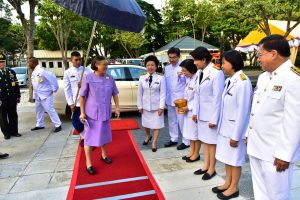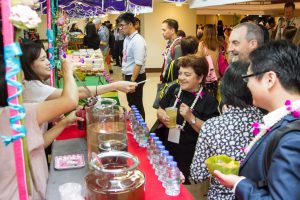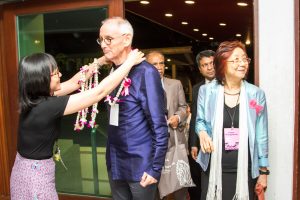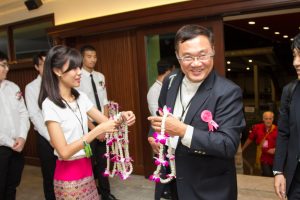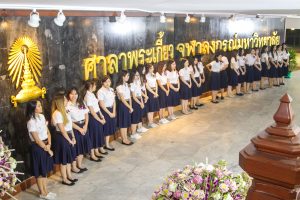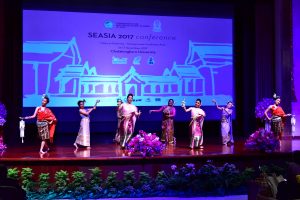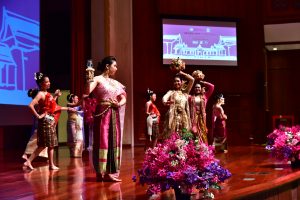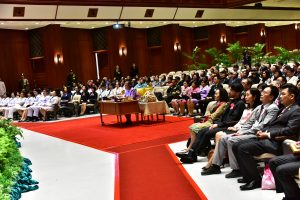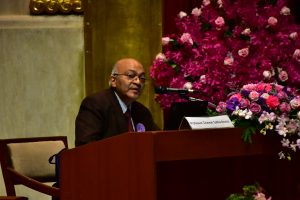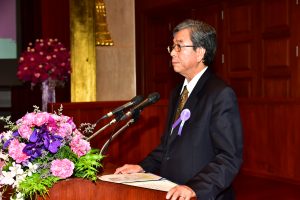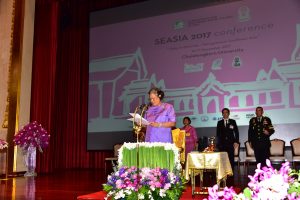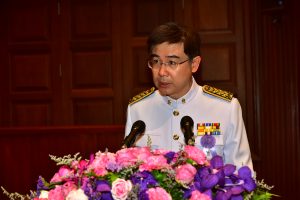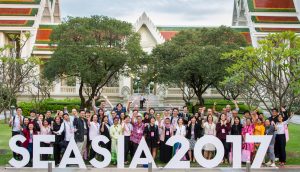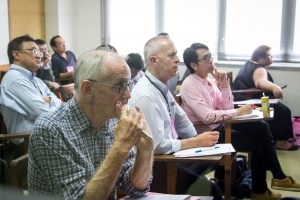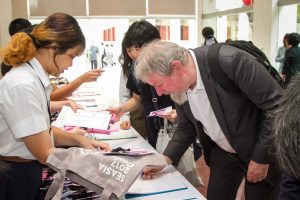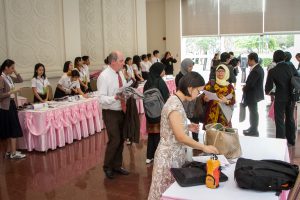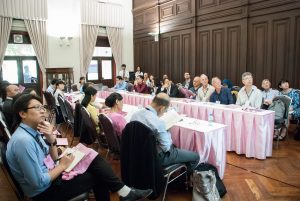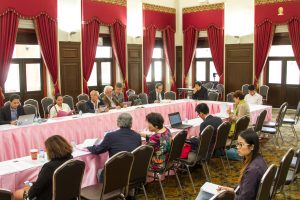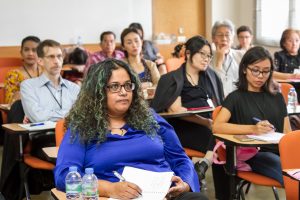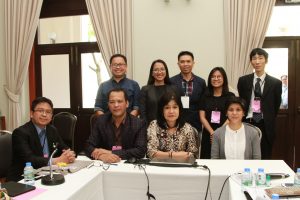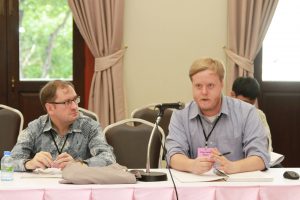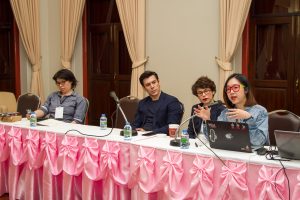"Unity in Diversity: Transgressive Southeast Asia"
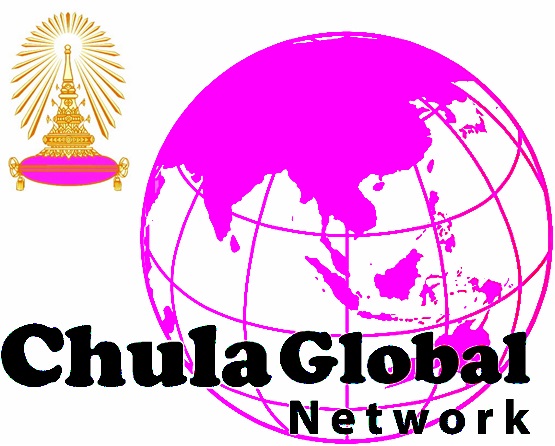











Place: Maha Chulalongkorn Building
Maha Chakri Sirindhorn Building
Chulalongkorn Univerisity, Bangkok
Date: 16th - 17th December, 2017
Time: 08.00 a.m.- 05.00 p.m.
Maha Chakri Sirindhorn Building
Chulalongkorn Univerisity, Bangkok
Date: 16th - 17th December, 2017
Time: 08.00 a.m.- 05.00 p.m.
The conference was taken place at Chulalongkorn University under the topic of “Unity in Diversity: Transgressive Southeast Asia” in order to promote 100th anniversary Chulalongkorn establishment as well as encouraging Southeast Asia studies. It has consisted of 10 consortium members in the region, which are prominent academic institutions. Her Royal Highness Maha Chakri Sirindhorn has graciously accepted to be the Guest of Honor for the Conference to mark this most special occasion. The CUCC endeavors to harness the best resources of the University and of Thailand in collaboration with the local supporters, to encourage fruitful engagements by the participants at this significant regional gathering, coming from various countries, sectors, and disciplines.
The objectives of this conference were (1) to promote Southeast Asia studies by leading the linking area studies institutions in the region in cooperative venture to provide a multilateral forum for organizing academic meetings, seminars, workshops, and symposia; (2) to promote research collaboration and networking, operate as a system for sharing information, and offer opportunities for education and training of young and up-and-coming scholars; (3) to seek to connect institutions specializing in the natural sciences, social sciences, and humanities whose scholars have an interest in, and who work on or in Southeast Asia, but do not necessarily consider themselves area studies specialists. The conference was full of ambitious and passionate people who are interested in Southeast Asia studies and globalization all around Asia and the world.
The objectives of this conference were (1) to promote Southeast Asia studies by leading the linking area studies institutions in the region in cooperative venture to provide a multilateral forum for organizing academic meetings, seminars, workshops, and symposia; (2) to promote research collaboration and networking, operate as a system for sharing information, and offer opportunities for education and training of young and up-and-coming scholars; (3) to seek to connect institutions specializing in the natural sciences, social sciences, and humanities whose scholars have an interest in, and who work on or in Southeast Asia, but do not necessarily consider themselves area studies specialists. The conference was full of ambitious and passionate people who are interested in Southeast Asia studies and globalization all around Asia and the world.

